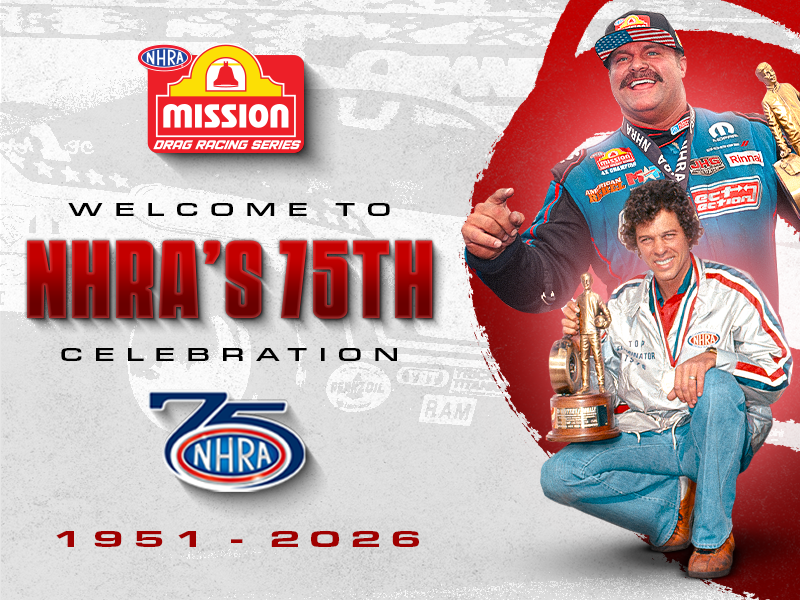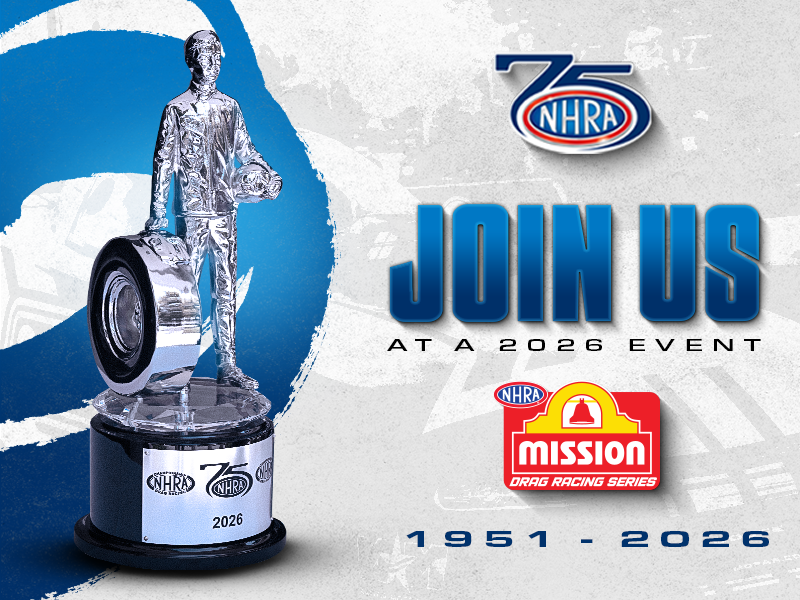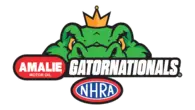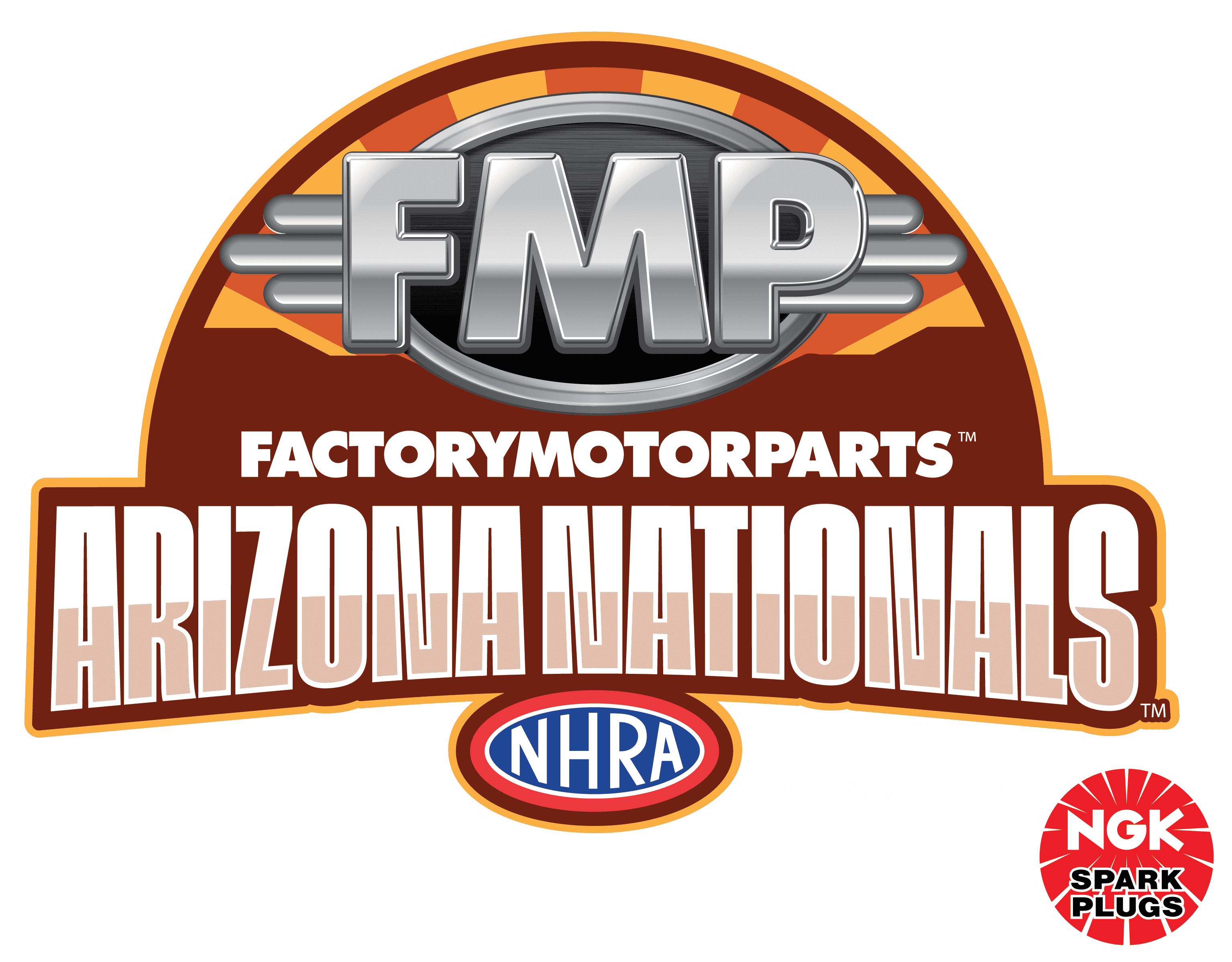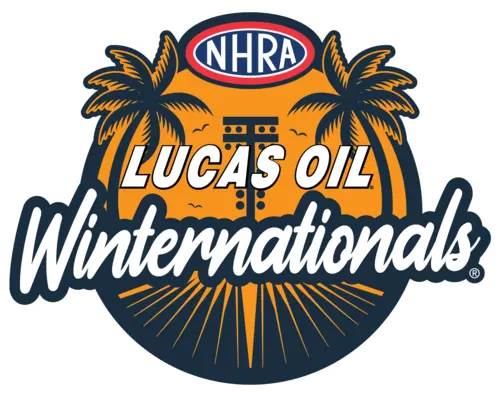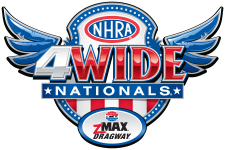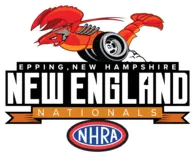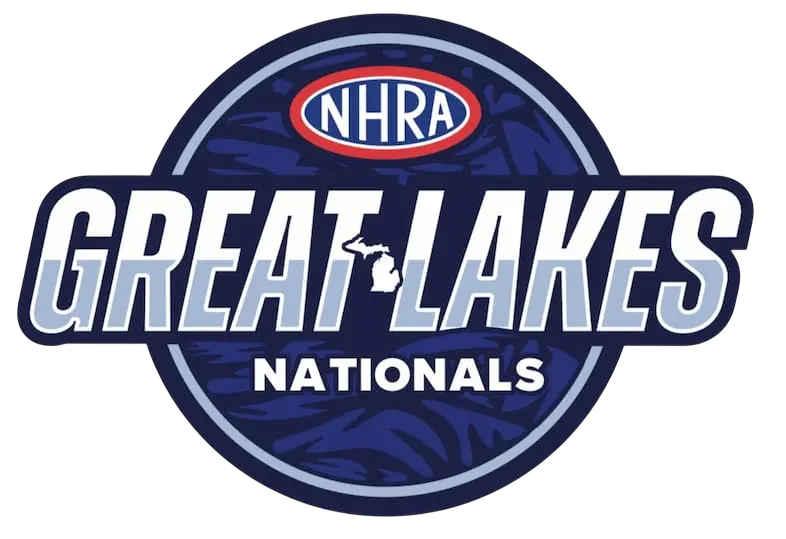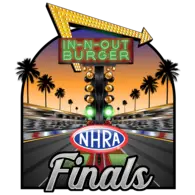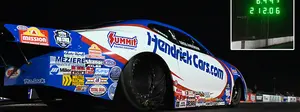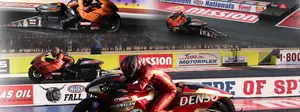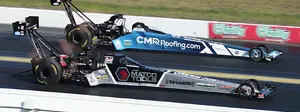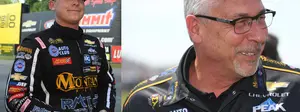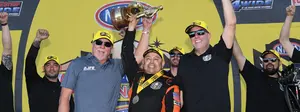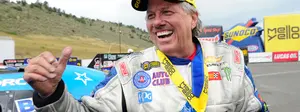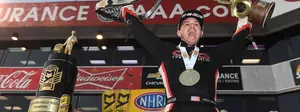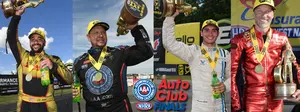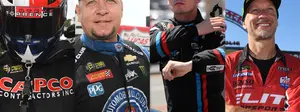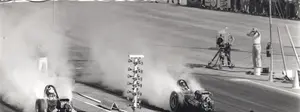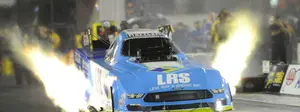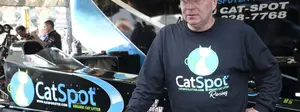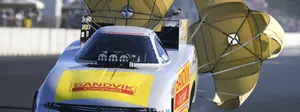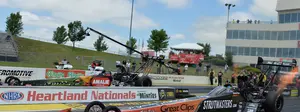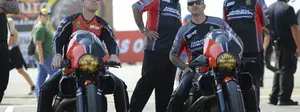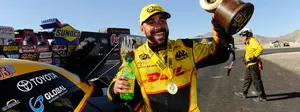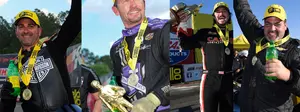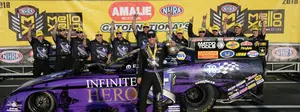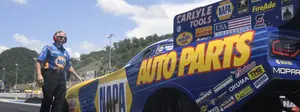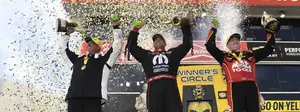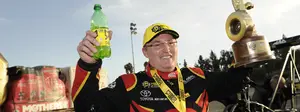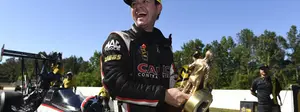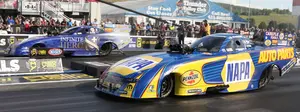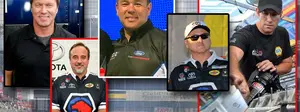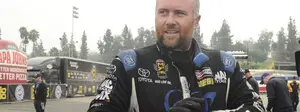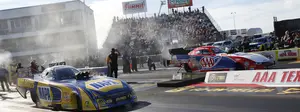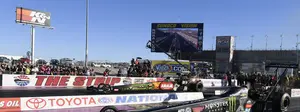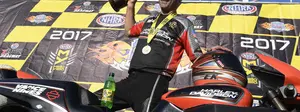Behind the Numbers: How Steve Torrence turned around NHRA’s most lopsided rivalry
You know who got real tired of hearing about Antron Brown kicking Steve Torrence’s butt in Top Fuel drag racing? Steve Torrence. So, he did something about it. It took some time, as one might expect when looking for an antidote to the poison concocted by one of the greatest Top Fuel racers of all time, but the Capco kid isn’t half bad at this drag racing thing himself, and in 2017, he has only gotten better.
First, let’s rewind to see how we got to the moment below: the 2017 Las Vegas race where Brown beat Torrence for the 21st time in his career, which made the win-loss record a staggering 21-1 in the Don Schumacher Racing pilot’s favor against the kid from Kilgore, Texas.
Ouch. Hop in the DeLorean because we’re going all the way back to 2008 to get this story started.
2008 Summit Racing Equipment NHRA Nationals
Brown and Torrence first faced off more than nine years ago in Norwalk. The first-round matchup ended with Brown getting the best of the Texan, a trend that continued for many years, despite a tight contest to start things off. Torrence lost the blower belt on his dragster, and Brown got the win light by a quarter-second. Fun fact: This was the only time the pair raced to a quarter-mile.
They met one more time in 2008 in Dallas, much closer to home for Torrence. This was still the closest race of the pair’s rivalry as Brown grabbed a holeshot victory by a .003-second margin. His light was .008-second better, something that has been a theme of this rivalry from the get-go. In 26 matchups, Torrence has had the better reaction time on only six occasions.
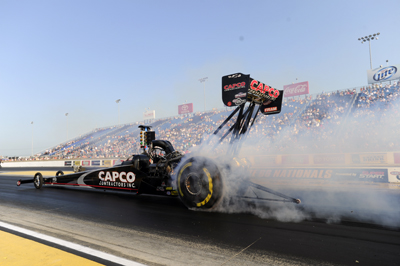 First final, and seeing too much red
First final, and seeing too much red
Perhaps because of those sluggish reaction times early on, Torrence overcompensated. Fast-forward to 2012 in Chicago, where the pair faced off in a final round for the first time. Brown had now beaten Torrence six straight times, though Torrence had grabbed the better lights in the previous two matchups with .045 and .046 reaction times, respectively. That changed in the Windy City.
Torrence cut his light a little too finely, red-lighting by .015-second and ending the race before it even started. Brown knocked the run out of the park with a 3.784-second pass, and Torrence was left thinking about what could have been. That started a troubling trend for Torrence, who red-lighted against Brown just two meetings later in the first round at the Sonoma event. He left too early one more time, at the season-ending Auto Club NHRA Finals in 2015, though it’s probably unfair to consider that part of the trend.
Torrence strikes back in 2016
That red-light in 2015 gave Brown a 16-0 lead over Torrence at the dawn of the 2016 campaign. It was at the NHRA SpringNationals in Houston where Torrence got his first lick in. A 3.73-second run, still the quickest elapsed time Torrence has run in the rivalry’s history, gave the Texan his first win by .013-second. Make it 16-1. Brown got the best of the next four races to close out the year, including two by tight margins (.008 and .009, respectively), but at least the Capco kid had shown that he could get it done against the Matco Tools team. Bring on 2017.
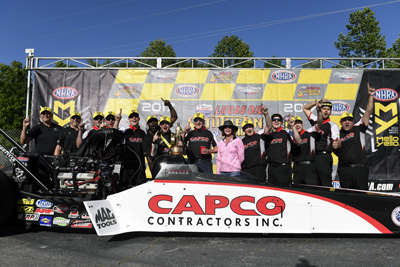 The Year of the Capco Boys
The Year of the Capco Boys
“A dropped cylinder will cost Steve Torrence once again as the round record gets even more upside down,” Dave Rieff said as Brown blew by Torrence at the Denso Spark Plugs NHRA Nationals just north of the Las Vegas Strip. Jump ahead a couple of months, and Brown handed Torrence another defeat, this time in a final round, in Topeka. The ledger stood 22-1 overall and 5-0 for Brown in final rounds.
For Torrence and company, this matchup grew darkest just before the dawn. Starting in Englishtown, Torrence began to chip away at the record with a .079-second margin of victory in the final round at the NHRA Summernationals. He beat his foe not just with the performance of his dragster (3.857 to 3.932) but by grabbing a .004-second advantage at the Tree, too.
To prove it wasn’t a fluke, Torrence did it again in Chicago. The two were tight again at the starting light, with Brown getting a .002-second advantage, but Torrence had the better car and won by .005-second. The tide was starting to change for the Capco boys, who firmly grasped the points lead in one hand and needed a new trailer to keep the five Wallys they were hauling back to Kilgore.
Then, after an early exit (by their standards, anyway) in Denver, the team bounced back in Sonoma to stop Brown’s chances of another Western Swing sweep. Torrence led from start to finish thanks to a good light (.051) and a strong pass (3.784), helping him to Wally No. 6 and an even bigger lead in the points standings.
The evolution of Torrence
So, what changed to get Torrence back into this fight? Quite simply: Torrence. Brown has been Brown this whole time. His elapsed times have stayed darn consistent throughout the rivalry, as have his reaction times, and he doesn’t beat himself. That’s something Torrence has gotten a whole lot better at this season.
In his last 10 meetings against Brown, Torrence’s average reaction time is a .060. In the races that preceded it (13, not counting the three red-lights), it was a .096. That speaks to a significant improvement Torrence has made in his reaction times overall. In 2016, Torrence was fine but not spectacular at the Tree (averaging a .073 reaction time). He has improved to a best-in-class .061 light this season, slightly better than Brown’s .062.
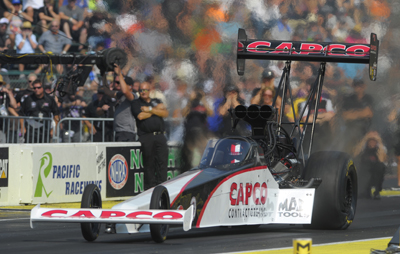 Part of that comes down to Torrence being more consistent, but the Capco team has a better car now, too. Torrence noticed something early during the 2017 season: He was hitting the gas at the same time as Brown, but the dragsters weren’t leaving at the same time.
Part of that comes down to Torrence being more consistent, but the Capco team has a better car now, too. Torrence noticed something early during the 2017 season: He was hitting the gas at the same time as Brown, but the dragsters weren’t leaving at the same time.
“[The reaction time] is not always indicative of what the driver does,” said Torrence, who attributed the tardiness of the dragster’s reaction to him hitting the throttle to clutch. “We went to work on [the clutch], and when we showed up this year, [the reaction time] moved.”
That’s only part of the story, though. Torrence doesn’t beat himself as often as he used to when he pulls up opposite Brown. When the two first started racing against one another, Torrence would try so hard to beat him that he’d make mistakes. Now, with a hot rod he knows is every bit as good as Brown’s, he can relax and let loose.
“I look at that whole team as the bar,” said Torrence. “If you go up there emotional about what you’re doing and wanting to kill him, it’s just like anything, any kind of fighting sport or whatever, if you’re not calm and composed, you don’t think.”
And while Brown hasn’t run an elapsed time slower than four seconds against Torrence in the 1,000-foot era (seriously), the kid from Kilgore has avoided smoking the tires in recent meetings. In 2017, Brown has averaged a 3.845 e.t. to Torrence’s 3.858 (including the 4.035 in Las Vegas). That’s only a sample size of five races, but the point is Torrence has improved this season, and it’s showing up in the results.
What does the back-to-back champ think about all this? Great question. Brown never took Torrence lightly, even when the record was clearly in his favor, so recent results haven’t changed his mind about the kind of racer he is. But it’s also in Brown’s nature to talk a little softly about his own accomplishments, so your (quarter-) mileage may vary.
“The Capco team has always been there,” said Brown. “All that matters is I end up on the other side of the ladder [as Torrence].”
It’s hard to know if he’s joking or not, both right then and always, frankly. Luckily for Brown, Torrence fell to Terry McMillen in the first round at the NHRA Northwest Nationals, opening the door for the Matco Tools team to take over the points lead following the Seattle event.
The head-to-head record may never reverse itself completely because it’s hard to imagine a world in which Brown bats under .500 against anyone for a prolonged period of time. That’s not really important, though. What’s important is this: The lopsided results of the past are no longer informative when talking about the current state of the rivalry between two of the best drag racers in the sport. Sometimes stats can tell us a lot about the past but not much about the future — this is one of those times.



